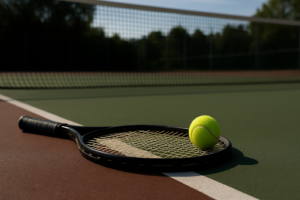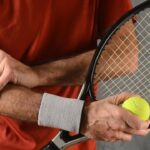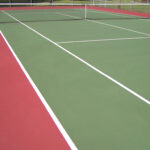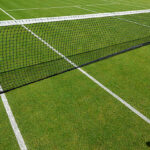Tennis is a sport of skill, speed, and timing. But more than anything, it’s a mental challenge. Every rally, every serve, and every return demands full focus. Players need to think fast, control their emotions, and plan ahead — all while on the move.
We often think of focus in fast-paced situations. Even on platforms like CrazyTime.games, success sometimes comes from quick, sharp reactions, not just chance. Tennis is built on the same idea. Split-second thinking can be the difference between winning and losing.
Tennis Is a Mental Workout
The physical part of game is easy to see — running, hitting, sweating. But the mental side is just as tough. Players must handle pressure. They have to stay cool after mistakes. They need to think clearly when tired or frustrated.
Tennis teaches:
- Mental control — stay calm, even when behind
- Discipline — stick to your plan under stress
- Emotional recovery — bounce back after a bad point
- Focus — block out noise and distractions
It’s not easy. But with practice, players get better at managing their minds, not just their bodies.
Fast Thinking in Every Rally
Tennis is one of the fastest sports around. A serve can hit 130 mph. There’s no time to hesitate. Players must:
- Read the ball’s spin and speed
- Track the opponent’s movement
- Pick the right shot
- Aim and swing — all in less than a second
This develops quick thinking. The brain gets used to rapid decisions. It’s like high-speed chess, played with your whole body. This kind of thinking helps in other areas too — work, study, even daily life decisions.
Strategy on the Move
Tennis isn’t just about hitting hard. It’s about using your head. Good players don’t play one point at a time. They think a few steps ahead. They set traps. They mix up their pace. They target weaknesses.
Examples of tactical thinking:
- Hitting to the opponent’s backhand often
- Using drop shots to break rhythm
- Serving wide to open the court
- Playing longer rallies to test stamina
Each match is a battle of plans. The best players adapt. They don’t just play — they study, adjust, and outthink.
Pressure Builds Character
Pressure is part of the game. Serving for the match. Facing break points. Playing a tie-break. These moments can crush weak minds. But they also build strength.
Players learn how to:
- Stay present — not think about the score
- Control nerves — breathe and slow down
- Trust their training — believe in their shot choices
With time, pressure stops being scary. It becomes a challenge. A chance to rise, not fold. This kind of mindset works in every tough situation — job interviews, exams, or big decisions.
It’s a Solo Battle
Unlike team sports, tennis is often played alone. No teammates. No coaches on court. You win or lose by yourself. That teaches:
- Self-reliance — no one is coming to save you
- Mental toughness — bounce back from your own mistakes
- Responsibility — own your results
You learn to handle the ups and downs. You stop blaming others. You figure out how to fix problems on the spot. That’s a powerful life skill.
Failure Isn’t the End
Every tennis player loses. Even the top ones. But the best don’t dwell on defeat. They review their match. They ask what went wrong. They improve.
Losses teach:
- Reflection — looking back with honesty
- Adjustment — trying new tactics in practice
- Patience — knowing growth takes time
Failure becomes part of the process. It’s not the enemy. It’s the teacher. And that’s true for anything worth doing.
Similar Skills in Other Strategic Play
Let’s compare tennis thinking with other types of high-focus activity:
| Skill | In Tennis | In Strategic Play |
| Quick Reactions | Returning fast serves | Responding under time pressure |
| Planning Ahead | Setting up points | Long-term decision paths |
| Reading Others | Watching opponent body language | Spotting behaviour patterns |
| Emotion Control | Staying calm in tie-breaks | Keeping cool after losses |
| Learning from Mistakes | Analysing match losses | Adjusting strategy after setbacks |
Tennis and smart decision-making go hand in hand. Both require a clear head, quick reads, and long-term thinking.
Fitness Supports Focus
Tennis players train their bodies to support their minds. A tired player can’t think clearly. A well-trained one stays sharp for five sets if needed.
Physical training includes:
- Endurance drills
- Strength work
- Flexibility routines
- Reaction training
This balance between body and brain helps players stay alert longer. Mental stamina comes from physical readiness.
Final Thought
Tennis sharpens more than your serve. It sharpens your thinking. It builds discipline, focus, and resilience. It teaches you how to win — and how to lose well. It forces you to solve problems alone and under pressure.
Whether you’re hitting on a court or facing a challenge in life, the skills carry over. Tennis creates strong minds as well as strong bodies. It’s more than a sport — it’s a full test of who you are and what you can become.







